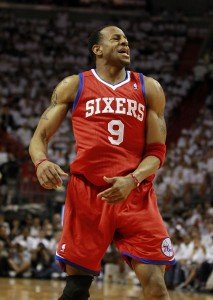Rumor review: Rumors must be sourced, not confused with speculation
Midsummer is high rumor season, so it’s a good time to review exactly what the word “rumor” means.
The NFL lockout is reportedly nearing an end, the NBA lockout is just underway, the NHL is in full offseason deal-making mode, the baseball trading deadline is a few weeks away and soccer is in the middle of the summer transfer window.
Rumors and speculation are flying everywhere, and they’re a big part of what Bleacher Report writers are doing at the moment.
So here’s the review: Rumors are always sourced. Speculation can spring from the mind of the writer.
It’s worth repeating this excerpt from the earlier post B/R 101: Attribution, citing sources and avoiding plagiarism:
Avoid unsourced rumors and allegations
Bleacher Report cannot stand behind a story with unsourced or unverifiable information.
Articles containing rumors (hirings/firings, trades, etc.) and/or allegations (criminal behavior, rule violations, etc.) require a clear, verifiable source.
Here’s how:
1. When repeating information from a specific source, that source must receive attribution per the guidelines above [see original post].
2. Avoid using unverifiable phrases like “Sources say” or “According to a person in the know.” We don’t use anonymous sources at Bleacher Report.
3. Be extra clear when differentiating between fact, verifiable rumor and mere speculation.
Simple example: “Reporter X at Source Y is reporting that Player Z could soon be on the move.”
We are not in the business of starting rumors at Bleacher Report. It’s not acceptable to put a headline like “NBA Trade Rumors: Kobe Bryant to the Chicago Bulls?” on a story in which the writer muses that it would be a neat idea for the Bulls to put together a trade package for Bryant, something that no one has reported is in the works.
If the writer wants to write a piece arguing that the Bulls should try to get Bryant, or that Bryant should demand a trade to the Bulls and how such a trade might work, that would be fine. But it wouldn’t be a rumor. It would be speculation.
Rumors often turn out to be false, or the predicted outcome does not happen. But the rumor itself must be a fact, an existing thing, for Bleacher Report to write about it and call it a rumor. And we have to offer proof of its existence in the form of a citation.


